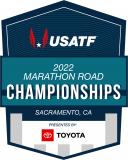
Folders |
Five Questions – Olympic Marathon Trials EditionPublished by
Will the men’s and women’s course records be set? The short answer to this is yes. Ryan Hall set the record in 2008, with his incredible New York City performance of 2:09:02. While Hall crushed the field in that race, he’s facing a much more formidable field in 2012, while running the race on course that is considered a touch faster. Hall and his chief rivals, could push the pace and take another minute or two off his record. The women’s record of 2:28:25, set by Colleen De Reuck in St. Louis in 2004, is guaranteed to be broken, unless the field goes out at 2:35 pace through 20 miles. Desiree Davila and Shalane Flanagan seem to have the speed and experience to crush the mark by at least a few minutes, while another group including Kara Goucher, Deena Kastor and Magdalena Lewy Boulet should run well under 2:30 and break the 2:28 mark. Regardless, most insiders and experts expect both races to be fast enough to break both course records. Who does it is a question that remains to be seen. Who’s the most overlooked runner in either field? It’s not that there is any guarantee that he’ll even finish in the top eight, but Jeff Eggleston is a runner everyone should know. The 27-year old, Flagstaff-based, runner has shown consistent improvement over the past few years, and enters Saturday’s race with a 2:13:12 personal best. Eggleston’s mark came at Grandma’s Marathon in 2011, where he ran the Pittsburgh Marathon the month before and won. With a little less racing and more preparation, Eggleston could drop another 2-3 minutes and put himself in prime position to challenge for much of the race. How many men will break 2:10 and how many women will break 2:30? The 2:10 and 2:30 marks are pretty impressive performances in the marathon, especially when it comes to national championship races, which tend to be a bit slower. However, the fields this year in the men’s and women’s races are the most talented up top and deepest fields seen in some time, meaning everything we’ve known about the marathon times could be thrown out the window. On the men’s side, there are a legitimate 6-10 guys who could give the 2:10 barrier a run. Ryan Hall ran the fastest Trials marathon time ever in 2008, when he finished the New York City course in 2:09:02. However, the Houston course should be equally, if not a bit faster, and the race most likely won’t spread out very much up top unless Hall takes off at a 2:05-6 pace. It’s nearly a guarantee that a dozen guys will charge at 2:10-12 pace for much of the first 75% of the race, as always it comes down to how well the last 4-6 miles are handled. Guys like Hall, Meb Keflezighi, Dathan Ritzenhein, Brett Gotcher, Jason Hartmann, Jason Lehmkuhle, Nick Arciniaga, Mike Morgan, Mo Trafeh and Ryan Bak should all be pushing the pace. The women’s race is the same story, with Desiree Davila, Shalane Flanagan and Kara Goucher all but guaranteed to break the mark. However, runners like Deena Kastor, Magdalena Lewy Boulet, and Amy Hastings seems poised and ready to break the 2:30 barrier. That right there is six, with another handful of women showing the promise to push the mark, including sub-2:30 performers Stephanie Rothstein and Clara Grandt. Where will the race be won or lost? For the top runners in each race, those being Ryan Hall and Desiree Davila/Shalane Flanagan, they will most likely set the tone and knowing each of those runners, the early pace will be fairly fast. It’s easy enough to see Hall going out at 2:06 pace and simply making it a gut-buster run, while Davila and Flanagan will certainly key off each other and make sure they earn top three finishes. With that said, the men’s race will undoubtedly be won or lost around mile 22. The faster early pace will allow the field to stretch out, but a pack of 8-12 athletes are capable of running 2:10 pace for 20 miles. The key is who can hang on at that point and then who can shift gears one last time at mile 22. Similarly, a large contingent of women will be together for 20 miles. After that is when the race will be won or lost. There is a much larger PR range amongst the top women, which means that some women could go out at 2:24 pace, when they should have gone out at 2:29 pace. One by one competitors will fall off and don’t be surprised to see a third place finish from someone totally unexpected. Who will finish top three? While so much focus goes into who will win, third place is as good as first when it comes to making the U.S. Olympic Team. My predictions have Hall and Meb making it, with a darkhorse Jason Hartmann sneaking in for third with a strong PR performance. The women’s race is similar, with Davila and Flanagan going 1-2, but Amy Hastings running another big-time performance and outkicking the field to finish third. Those are my picks, who are yours? More news |





















